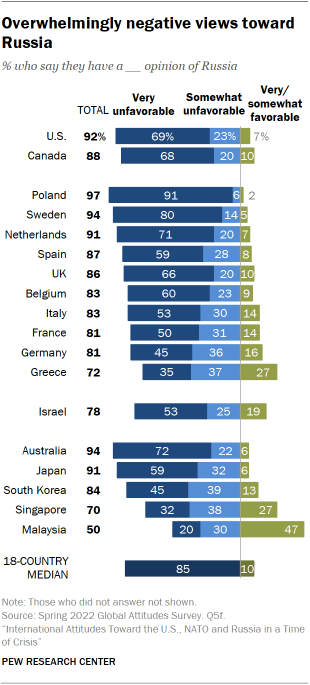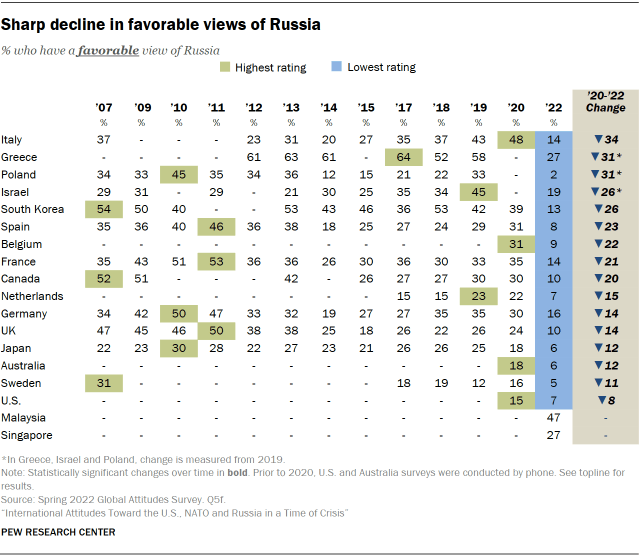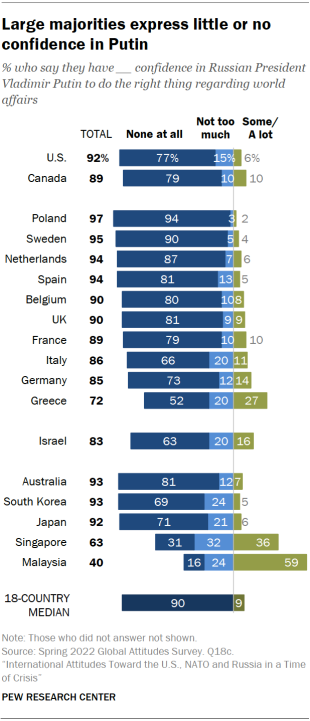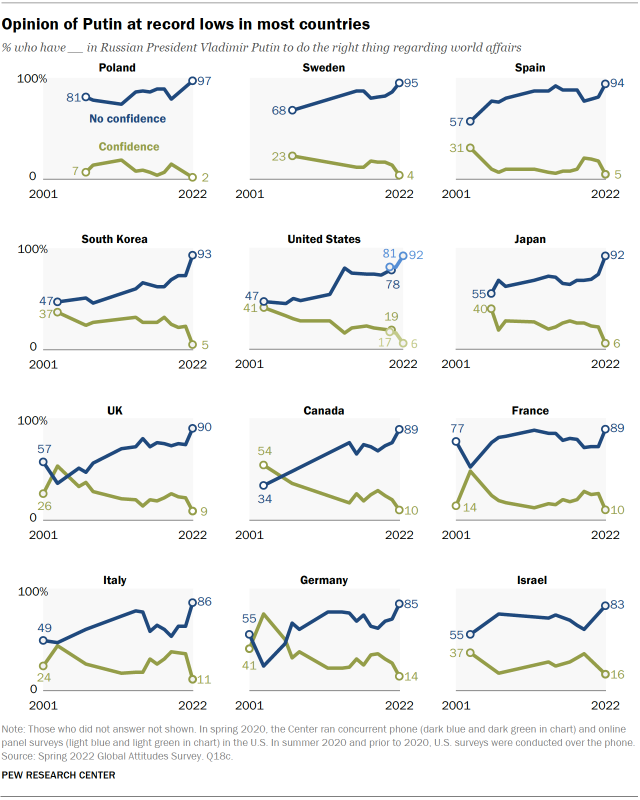
A median of 85% across 18 countries express an unfavorable opinion of Russia, with majorities in most nations saying they have a very unfavorable opinion of Russia.
In almost every country surveyed, at least seven-in-ten have an unfavorable opinion of Russia. Malaysia is the only country where this is not true; instead, Malaysian opinion is more mixed, with only half saying this. Poles are especially critical of Russia: 97% have an unfavorable opinion, including 91% with a very unfavorable view.
There has been a steep decline in Russian favorability since the question was last asked in 2020, with record low shares in all 18 countries expressing positive opinions of Russia. In nearly every country where there is trend data available, favorability for Russia has dropped by double digits. In Italy, Greece and Poland, positive views of Russia have declined by more than 30 percentage points since the question was last asked (2020 for Italy and 2019 for Greece and Poland).

Confidence in Putin reaches a 20-year low in most countries

Consistent with trends for Russian favorability, majorities in almost every country surveyed express little confidence in Russian President Vladimir Putin. Across 18 nations, a median of 90% say they do not have confidence in Putin to do the right thing in world affairs, and nearly eight-in-ten (78%) express no confidence at all in Putin.
Malaysia is again an exception to the overall trend, as it is the only country surveyed where a majority expresses confidence in the Russian leader.
Over the last two decades, ratings for Putin have been on a downward trend in many countries, but in 2022, these numbers reached record lows in every nation where trends are available, with double-digit declines in most since the last survey year.
In general, Europeans who support right-wing populist parties in their country are more likely to have confidence in Putin to do the right thing in world affairs. For example, among Greeks who have a favorable view of the Greek Solution party, 55% trust Putin’s handling of international affairs; only 18% trust Putin among those who have an unfavorable view of the party. Similar patterns can be seen among supporters of right-wing populist parties in Germany (Alternative for Germany), the Netherlands (Forum for Democracy and Party for Freedom), the UK (Reform UK), France (National Rally) and Sweden (Sweden Democrats). Yet, while right-wing populist supporters rate Putin more positively than their counterparts, confidence in Putin has decreased more drastically among this group since 2021. In Sweden, for example, 9% of Sweden Democrats supporters trust Putin, down from 30% in 2021. Among those who do not support Sweden Democrats, confidence in Putin was already very low in 2021 (8%) and therefore did not drop as much this year (2%). (For more information on European populist parties, see Appendix.)
A similar pattern exists regarding general ideological leanings. There were large ideological divides in 2021 on attitudes toward Putin, with those on the right of the political spectrum expressing more confidence in him than those on the left. In the current survey, confidence in Putin has decreased more starkly among those on the right, and in many countries both groups have similarly poor views of the Russian president.



